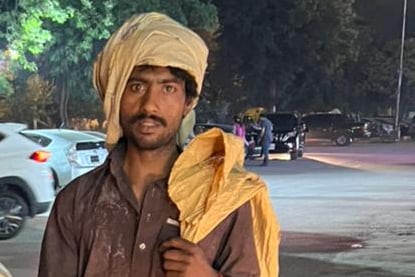Every year, October 10th marks World Mental Health Day—a day dedicated to raising awareness about the importance of mental well-being. Across social media, workshops, and events, there are countless discussions about self-care, therapy, and ways to combat stress. It’s a vital movement that emphasizes that mental health is as important as physical health, deserving our attention and care. However, while mental health conversations have come a long way, they often neglect a critical group: the underprivileged.
In marginalized communities, the struggle for survival overshadows discussions about mental well-being. For many living in poverty, access to food, shelter, and basic needs takes precedence. Conversations about anxiety or depression are often luxuries they cannot afford. Mental health resources remain out of reach, and many lack the time, knowledge, or support systems to seek help. In Pakistan, the burden of mental health issues among the underprivileged is even more pronounced.
The country faces a significant shortage of mental health professionals, with the ratio of psychiatrists and psychologists to patients far below global standards. For those living in poverty, struggling to make ends meet, mental health challenges often remain undiagnosed and untreated. The constant stress of financial instability, unemployment, lack of access to education, and social stigmas creates a fertile ground for anxiety, depression, and other mental health conditions. Yet, due to the societal taboo surrounding mental health many suffer in silence.
It’s time to acknowledge that mental health is not just for those who can afford a therapist or take time off work. It’s about recognizing that those facing the harsh realities of poverty—uncertain futures, chronic stress, and trauma—are often the most in need of mental health support. On World Mental Health Day, and beyond, let’s broaden the conversation to include these overlooked communities. Let’s push for accessible mental health services, outreach programs, and policies that recognize the struggles of the underprivileged.
MEET RASHID ALI


Rashid is a familiar face on the bustling streets of Islamabad, quietly selling samosas and pakoras to passersby, trying to make ends meet. His small stall is tucked in a corner, where the aroma of fried food fills the air, drawing in customers. But behind his tired smile is a man carrying the heavy burden of a life filled with daily struggles. We spoke with Rashid about mental health, wondering how someone in his position deals with stress and anxiety. His response was both heart-wrenching and eye-opening.
Rashid shared that his day starts before sunrise, with long hours of preparation for his stall. The constant pressure to sell enough to support his family weighs heavily on him. He expressed that while he feels the effects of stress—sleepless nights, constant worry, and a sense of hopelessness—there is no room in his life to address these feelings. For people like him, mental health is often a luxury, something that society overlooks for the underprivileged. Rashid explained that in his community, talking about stress, anxiety, or depression isn't considered important. The focus is on survival, not mental well-being.
He feels isolated, as there are no avenues for him to seek support or even talk about his struggles. Rashid's story is a poignant reminder of how mental health issues are often ignored among the lower classes in Pakistan. For individuals like him, the daily battle to provide food for their families leaves no space for self-care or emotional healing. His story highlights the need for greater awareness and support for mental health, especially for the underprivileged, who are often fighting battles that go unseen.
MEET AURANGZEB


Aurangzeb is a man of quiet resilience, working day in and day out to collect and sell garbage in the crowded streets of Islamabad. His life is a stark reflection of the harsh realities faced by many in Pakistan’s underprivileged communities. With a large sack slung over his shoulder, he roams the streets, picking up discarded plastic bottles, metal scraps, and anything that can fetch a small amount of money. Every piece of trash he collects is a step toward putting food on the table for his family.
When we asked Aurangzeb about how he manages the mental and emotional toll of such an exhausting life, his response was one of sorrow mixed with resignation. He admitted that stress is a constant companion, as he’s always worried about earning enough each day to survive. But he, like many others in his situation, has no choice but to push these feelings aside. "In our world, who talks about stress?" he asked with a wry smile. For someone like him, mental health is a distant concept, something people with money or education might talk about, but in his reality, survival comes first.
Aurangzeb spoke about the lack of support systems for people in his position. There’s no time or space to even acknowledge his feelings of exhaustion or hopelessness because he has a family depending on him. His work is physically demanding, and the constant worry about his financial situation adds an invisible burden. He shared that his community doesn’t address mental health; the focus is on getting through the day. His tale underscores how those at the margins of society often endure profound struggles in silence, with their mental health largely ignored or dismissed as irrelevant.
